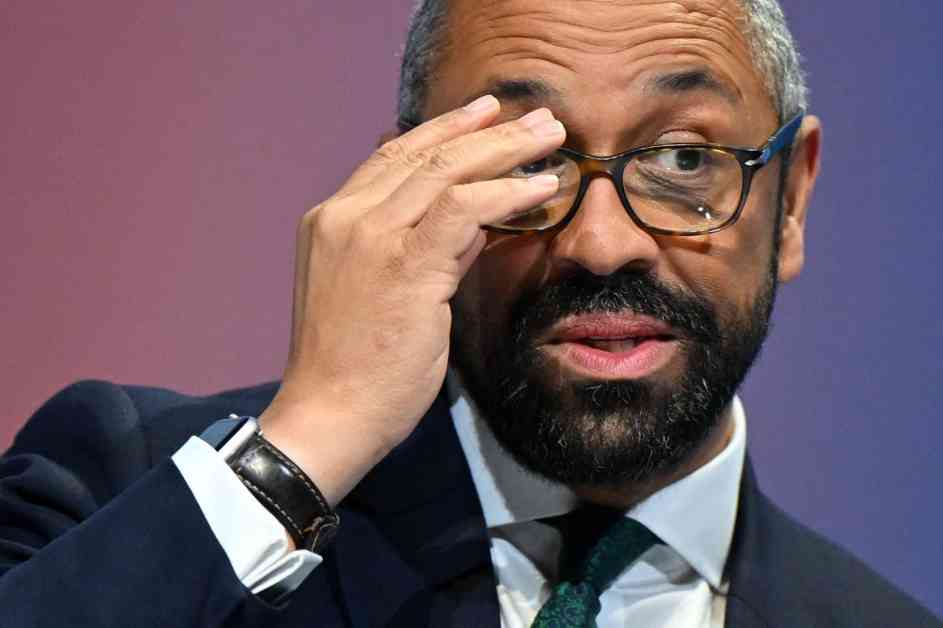The downfall of James Cleverly in the Tory leadership contest has sparked various conspiracy theories, but insiders have denied any foul play. Cleverly, who seemed confident just before being eliminated, faced speculation that his campaign manager, Grant Shapps, may have orchestrated a plan that backfired. However, sources close to the campaign have dismissed these claims as untrue, attributing Cleverly’s elimination to tactical voting by some MPs.
Despite the disappointment for Cleverly, the final two contenders are now right-wingers Robert Jenrick and Kemi Badenoch. Jenrick, who had a scare in the previous round when his support dropped unexpectedly, managed to secure his spot in the final two. This outcome was due to a shift in voting behavior among MPs, with some new members attempting tactical moves that ultimately benefited Jenrick.
On the other hand, Cleverly’s team acknowledged that their supporters may have been overconfident and played tactical games that ultimately led to Cleverly’s elimination. With such a small margin of error in the voting process, just a couple of MPs switching their support could make a significant difference in the final outcome. Despite the initial shock and disbelief among supporters, the final result pointed to a miscalculation rather than a deliberate conspiracy.
The unfolding events in the Tory leadership contest highlight the complexities and uncertainties of political campaigns, where even small strategic decisions can have significant consequences. The intense competition and high stakes involved in leadership races often lead to speculation and theories about behind-the-scenes machinations. However, as the dust settles and the final contenders emerge, it becomes clear that sometimes unexpected outcomes are simply the result of human error and misjudgment rather than elaborate schemes.












